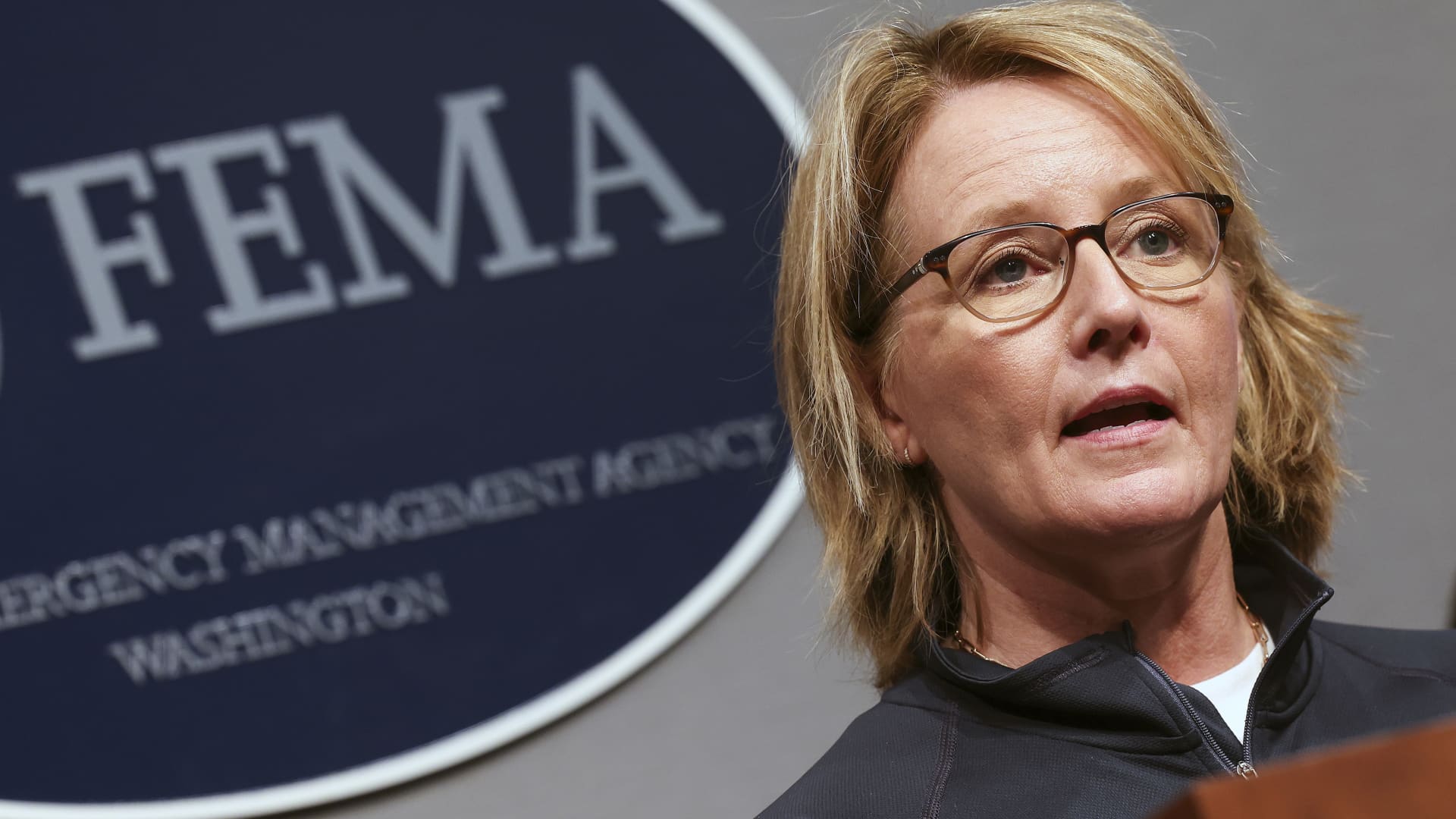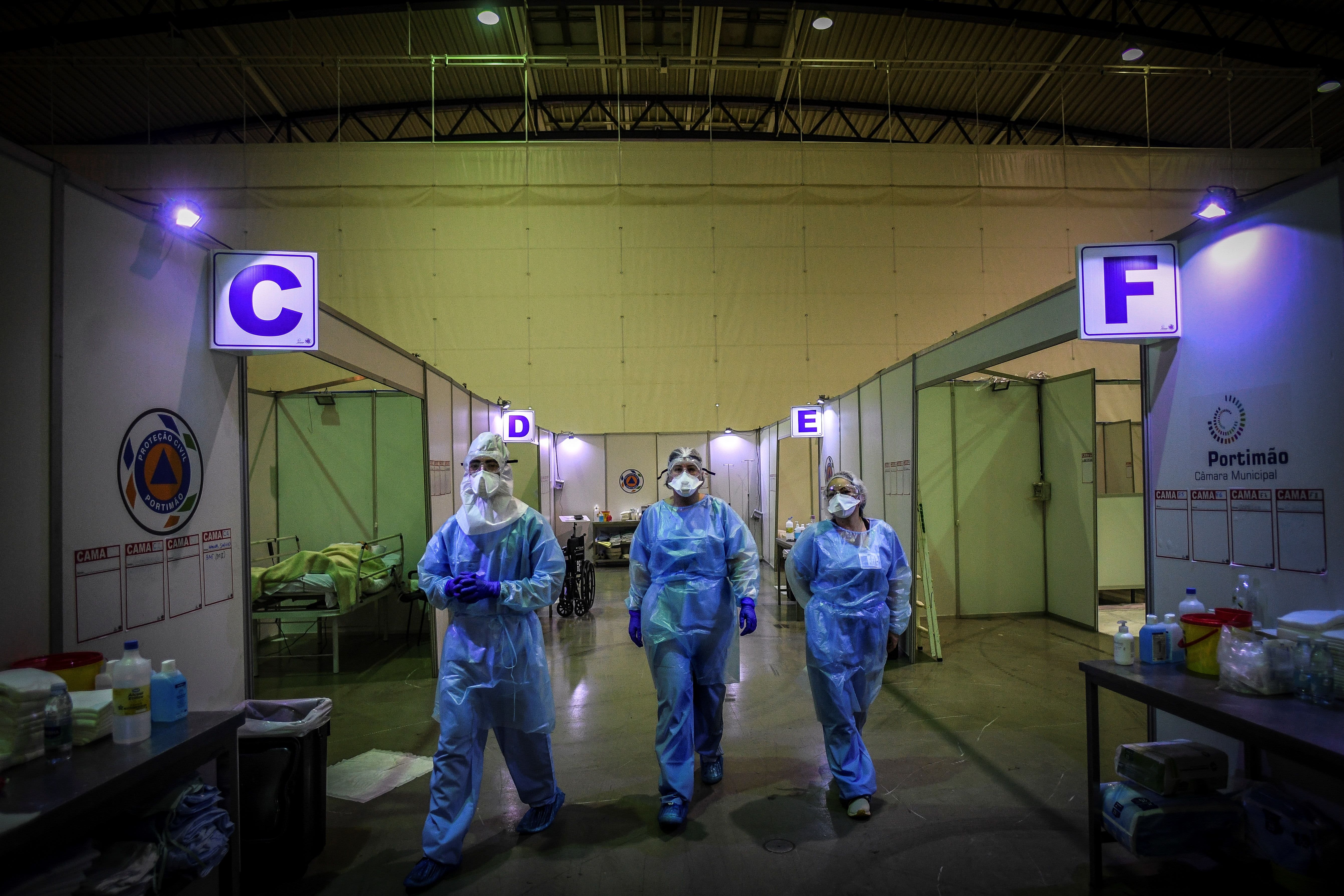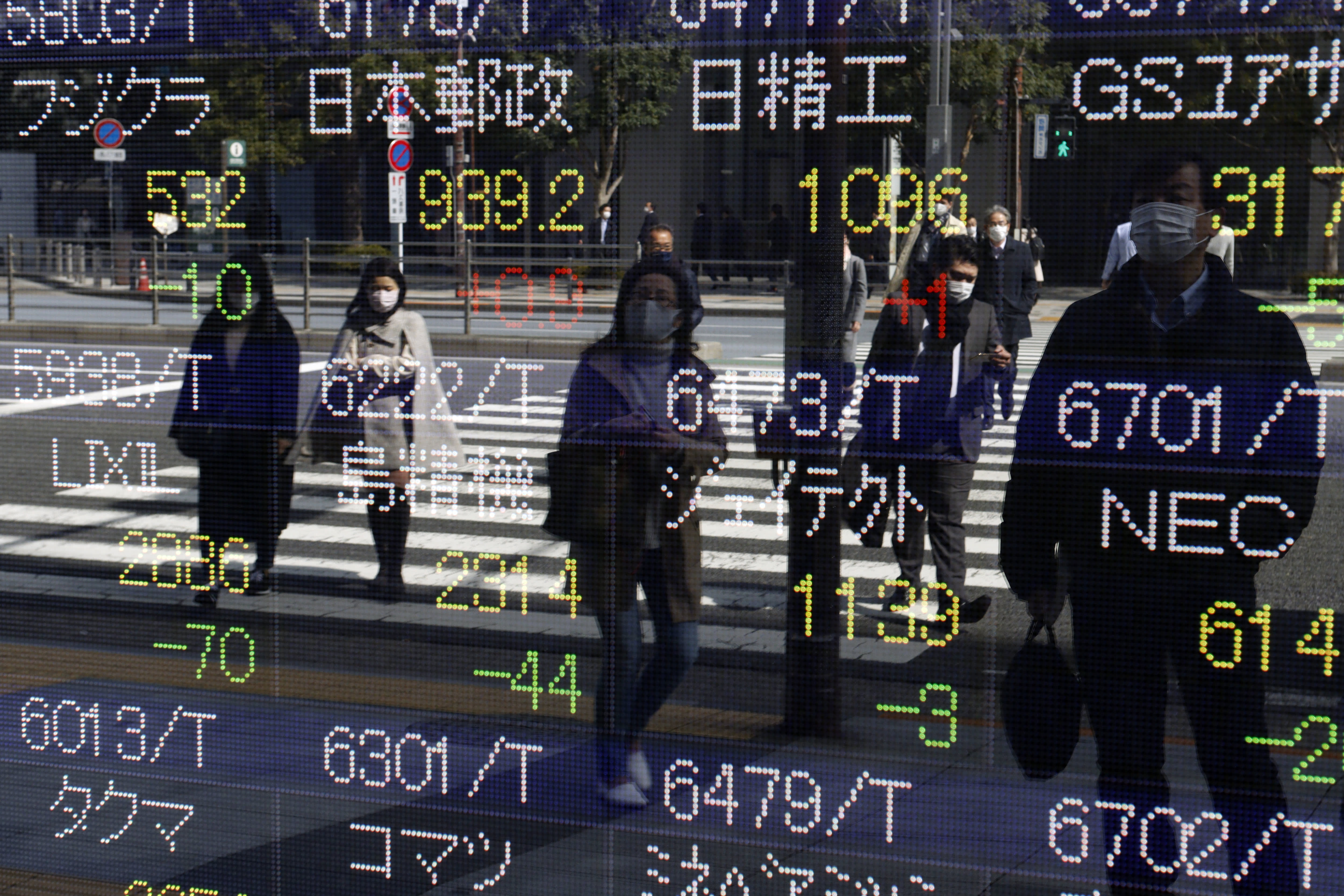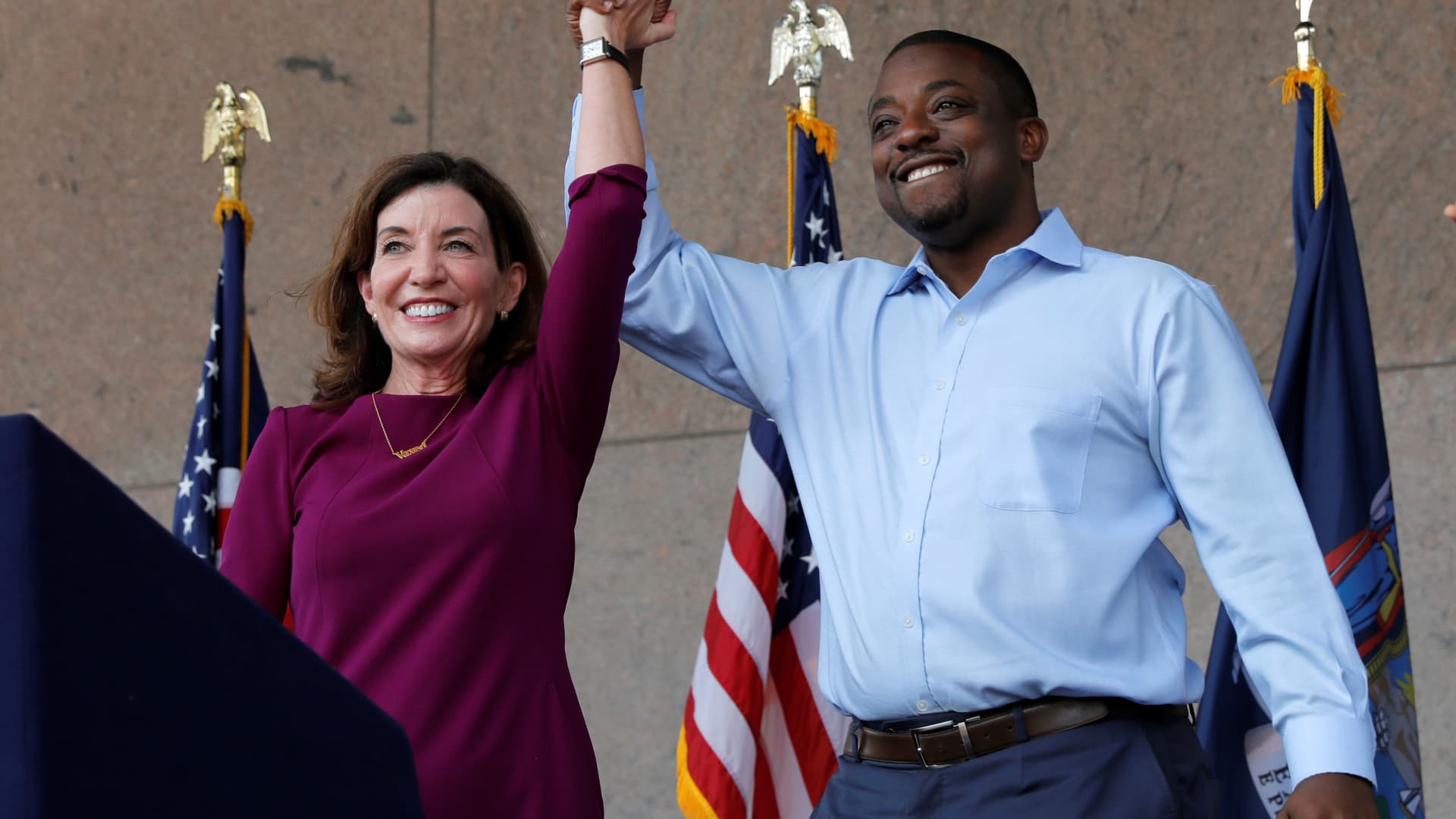FEMA is down to its last $3.4 billion as Maui wildfires, Hurricane Idalia slam U.S.
Biden called on Congress Thursday to pass $12 billion in additional funding for FEMA next month at the latest when hurricane season reaches its peak.

Federal Emergency Management Agency (FEMA) Administrator Deanne Criswell holds a press conference on Hurricane Ian at FEMA Headquarters on September 28, 2022 in Washington, DC.
Kevin Dietsch | Getty Images
The Federal Emergency Management Agency is running low on money to respond to natural disasters as the U.S. faces billions of dollars in damage from the catastrophic Maui wildfires and as hurricane season is just getting started with a massive storm that slammed Florida this week.
FEMA Administrator Deanne Criswell said this week that the U.S. disaster relief fund has a balance of $3.4 billion, which will be exhausted in the first half of September if Congress does not approve additional money.
President Joe Biden called on Congress Thursday to pass $12 billion in additional funding for the disaster fund next month, at the latest, when hurricane season reaches its peak.
"We're going to need a whole hell of a lot more money to deal with all you're taking care of," Biden told FEMA personnel during a visit to the agency's headquarters in Washington, D.C. "We need this money done. We need this disaster relief request met and we need to do it in September — we can't wait," he added.
With funds running low, FEMA is prioritizing the immediate needs of people impacted by the Maui wildfires, Hurricane Idalia that swept through Florida this week and other extreme weather events that may come, Criswell told reporters at the White House on Tuesday. This means other recovery projects would be pushed into the next fiscal year to keep money available for the immediate response operations.
"I want to stress that while immediate needs funding will ensure we can continue to respond to disasters, It is not a permanent solution," Criswell said during the press briefing. "Congress must work with us on the supplemental request that the administration has made on behalf of FEMA."
Republican Sen. Marco Rubio of Florida said on Wednesday that Washington has known since June that FEMA's disaster fund was "woefully low."
Rubio said FEMA is using the money it has left to meet immediate needs from current disasters while putting reimbursements for previous disasters on the back burner: "That's a real problem for local governments," Rubio told Fox News.
The federal government also faces a shutdown on Oct. 1 if Congress fails to pass broader funding legislation. Criswell said this week that a shutdown would not impact FEMA operations to address the immediate needs of people in disaster zones.
The White House Office of Management and Budget asked Congress two days after the fires broke out on Maui to approve the additional disaster funds. Criswell said this week that the additional $12 billion would get FEMA through the end of the fiscal year.
But the White House request for more disaster money could get tripped up over growing Republican opposition to U.S. military aid for Ukraine. The White House linked the disaster money to a request for more than $20 billion to bolster Kyiv as its counter-offensive against the Russian occupation struggles.
Rubio and Florida's other Senator, Republican Sen. Rick Scott, have called for Congress to consider the disaster funding and Ukraine aid separately. Scott said he will introduce a bill to bolster FEMA's disaster fund with $12.5 billion and push for an immediate vote when Congress returns from summer vacation
Scott accused the Biden administration of "playing games" by tying the FEMA funding to aid for Ukraine. Rubio told Fox News, "No matter how anybody feels about Ukraine funding those two things should never be one for the other."
When Biden visited Maui earlier this month, the president promised to help "for as long as it takes" to rebuild from the deadliest U.S. wildfires in more than a century. The Maui fires destroyed the town of Lahaina and killed at least 115 people. The inferno left behind $4 billion to $6 billion of damage to physical assets alone in its wake, according to an estimate by Moody's.
Criswell told reporters on Wednesday that it would take several days to get an initial assessment of how much damage Idalia has done. The FEMA administrator met with Gov. Ron DeSantis in Florida on Thursday to get a sense of the damage and report back to the president. Biden is set to visit Florida on Saturday.
Idalia made landfall on Florida's Big Bend coast Wednesday morning as a catastrophic Category 3 storm, flooding coastal towns in the western part of the state. The storm weakened as it moved inland but still drenched Georgia and South Carolina.
Biden has attributed the frequency of recent natural disasters to climate change. "I don't think anybody can deny the impact of the climate crisis anymore," the president said during remarks at the White House on Wednesday.
"Just look around — historic floods, more intense droughts, extreme heat, significant wildfires have caused significant damage like we've never seen before," Biden said.
The president was asked Wednesday whether he can assure the American people that the federal government has enough disaster funding to get through hurricane season: "If I can't do that, I'm going to point out why," Biden responded, threatening to point the finger at Republicans in Congress.
"How can we not respond to these needs," Biden asked rhetorically. "I'm confident even though there's a lot of talk from some of our friends up on the Hill about the cost, we got to do it — this is the United States of America," he said.

 JaneWalter
JaneWalter 































